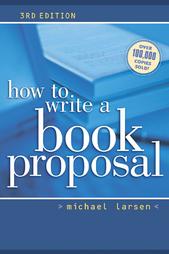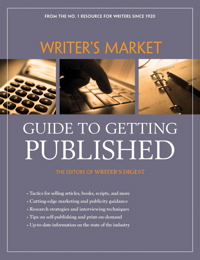
I got another of those book proposals recently (in my day job, Gentle Reader, I am a part-time acquisitions editor at Westminster John Knox Press). The author had spat out something half-baked, and then seemed surprised when I was critical and rejected it.
As an editor, I often work with authors to improve various sections of the book proposal if I think the project has promise. However, that author had done almost everything wrong in the proposal. Let his mistakes be a lesson to us all! Here, for the record, are the top ten ways authors sabotage their book proposals.
1) Send the proposal on paper. Yes, I’m sure there are still a few cranky old holdout editors who prefer receiving a hard copy, via snail mail, with a quaint little SASE attached by paper clip. But it sends the wrong message to most of us. Remember that you’re going to have to demonstrate comfort with promoting your book via social media (see tips 7 and 8), and paper book proposals communicate your plan to hand-sell your book from the back of a Conestoga wagon rather than via an online community of readers you’ve courted. Also, authors don’t usually realize that unsolicited paper proposals get lost in a generic “slush pile” while proposals that are emailed to an editor by name land in that editor’s personal in-box. The editor may still reject it, but at least she saw it in the first place.
2) Don’t research the publishing house. This one seems so obvious that I can’t believe I have to say it, but I still get a lot of book proposals for memoir, fiction, and children’s books, three things our website makes clear that we don’t publish. We also get proposals all the time for things that technically do fit into the realm of what we publish–theology, Christian living, biblical studies–but aren’t pitched at our core audience. Knowing the core audience of a publishing house involves poring over its online catalog and looking at similar books.
3) Don’t edit your proposal or run spell-check. Just as a friendly reminder, the person at the other end of your proposal is an editor. This is a word nerd who actually enjoyed diagramming sentences in the ninth grade and cares about the sad decline of correct apostrophe usage. So take the time to get it right.
4) Send the whole freakin’ book without a proposal at all. Sometimes authors are anxious to impress an editor that the book is already done. It’s fine to let the editor know a draft is finished, but the point of a book proposal is not just to show you can write; it’s to demonstrate that a market exists for your work and that you already have experience in reaching that market. Sending the whole finished book doesn’t communicate this. (It also suggests that you’d be unwilling to make necessary revisions, as with one author who sent me an entire book last December and announced that it was completely ready to be published and that a book proposal was therefore unnecessary. “A few moments with the manuscript should be enough to sell an editor with eyes to see,” he wrote. “I know this is a bold request on my part, but this book is like a baby that needs to be born and I am looking for a stable.” In case you’re wondering, there was no room at the inn.)
5) Don’t research your competition. This one is a source of constant irritation to editors. (Breathe, Jana. Breathe.) Okay, here goes: never send your proposal with the “competitive works” section basically blank and declare that there is “nothing else like this book out there.” There is always a competitive work. Not acknowledging that fact shows that you are clueless about how to position your book in the crowded marketplace and have done no homework about what makes your book special. The competitive works section is your chance to show a) why your book has a different twist or argument, and b) that an audience already exists that bought these other titles. Part B is actually really important; you’re convincing a publisher that people have wanted similar books in the past.
6) Forget that publishers take enormous financial risks when they publish a new author. Let’s say you’re a brand new author at a small house and you’re going to get a minuscule advance of $1,000. That may seem like a pittance, but what you don’t see is that publisher is probably spending about $15,000 to $20,000 to publish your book. That’s what it costs when you add in the costs of everything the publisher is doing for you: professional editing, production, cover design, warehousing, shipping, marketing, advertising, publicity, and holding your hand. That’s why you need to have some collateral in your book proposal, just like you would if you showed up at the bank wanting a $15,000 loan. Your collateral is your ability to sell the book to your target audience (which, by the way, is never “everyone”–be specific about the niche audience for your book).
7) Don’t make any suggestions for promoting your book. Authors that don’t pay attention to the marketing section of their proposal are shooting themselves in the foot. To a publisher, the ideal author is one who comes in with a “platform” as a recognized expert on the topic and has both enthusiasm and experience in promoting himself. The author should be arranging speaking engagements, running a popular blog on the book’s topic, writing op-ed pieces, etc. The worst kind of an author, from the publisher’s perspective, is the one who expects the publishing house to do everything and then complains that he didn’t get on Oprah.
8) Have no Google trail. If an editor is intrigued by your book proposal, she is going to Google you to look at your blog, op eds, and social media profiles. She’s also going to want to see if other people are talking about your speaking engagements or articles. You want to have a top-notch professional Google trail that relates to the book proposal you’re submitting, and not just one that points to, say, regrettable nights of debauchery.

9) Don’t follow up. If two months have passed since you first emailed your proposal, a gentle email reminder can prod the editor into giving you an answer. Editors have a lot of responsibilities beyond acquisitions, and unsolicited book proposals tend to gather dust in favor of more urgent deadlines. So don’t be afraid to send a kind reminder at the eight-week point.
10) Be a PITAA. PITAA is a wonderful acronym I learned from Jane Friedman (not that Jane Friedman–The Other Jane Friedman) at Writer’s Digest Books. It stands for Pain in the Ass Author. You do not want to be one. Your first chance to demonstrate this is in how you respond if you are lucky enough to get feedback from an editor about how to improve your book proposal. Editors are busier than you probably know, and if one has taken the time to critique your proposal, be grateful, even if his answer is no. It may become a yes for another project down the road, and how you comport yourself now is one important part of the equation for whether the editor wants to work with you in the future.
Ah, I feel better now. Thanks for letting me vent, people! I hope these tips are helpful to aspiring authors. It can be done, and done well. I highly recommend Michael Larsen’s How to Write a Book Proposal. And if I can plug my own work, please check out The Writer’s Market Guide to Getting Published, which came out this spring. I was the ghostwriter.

